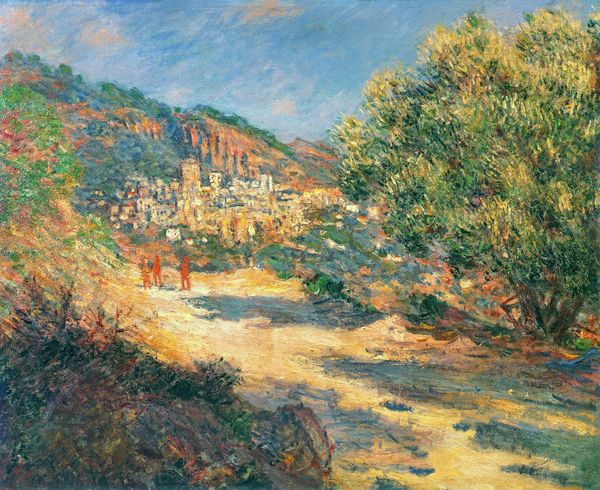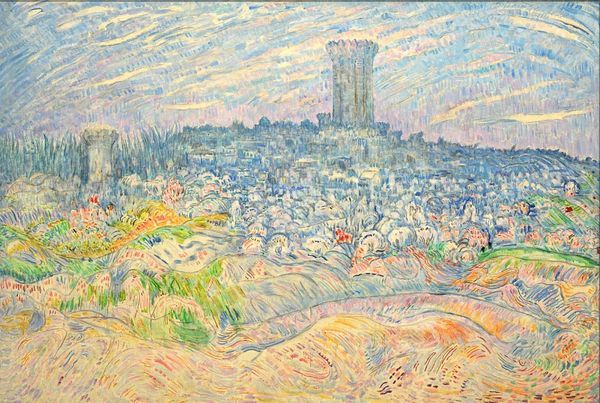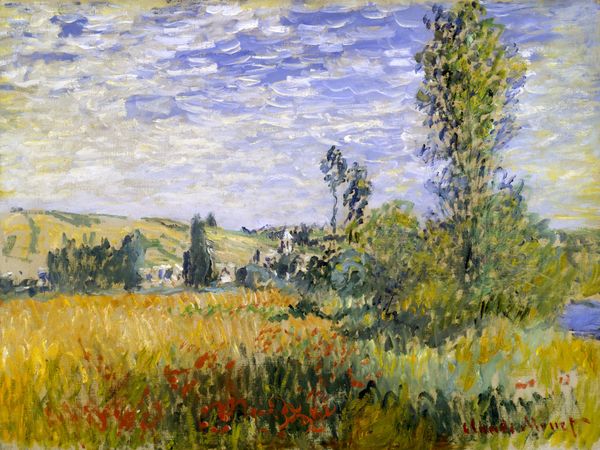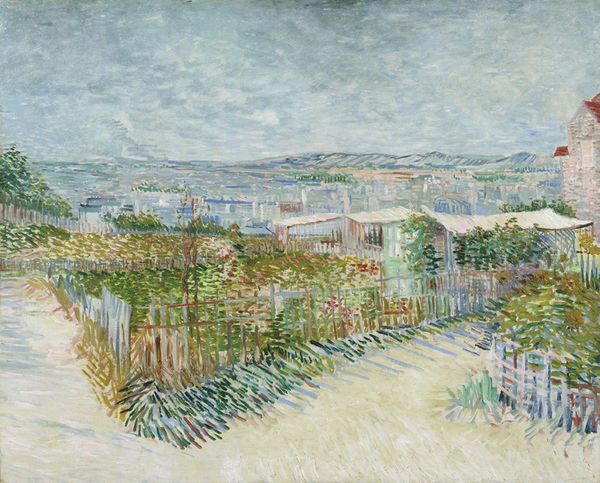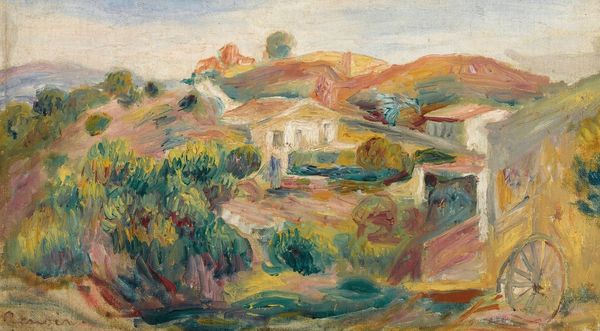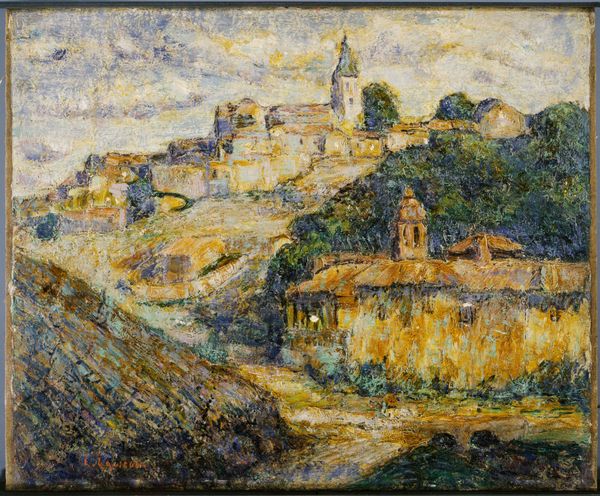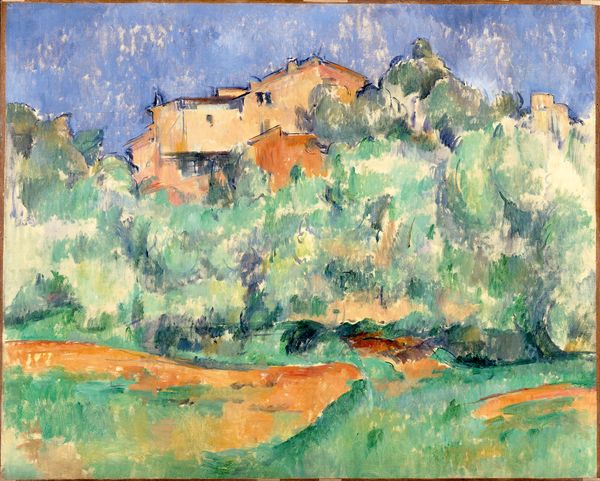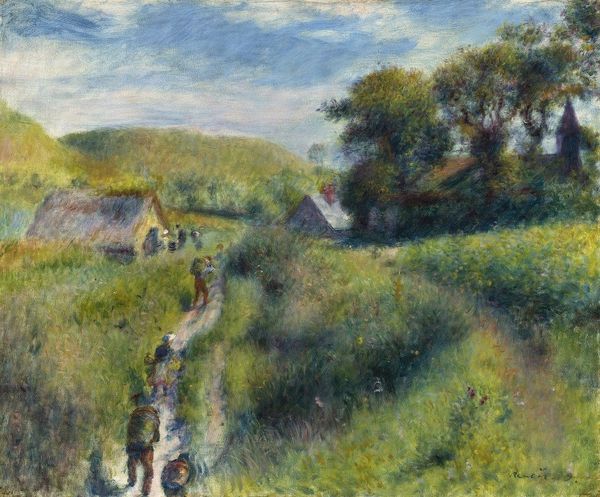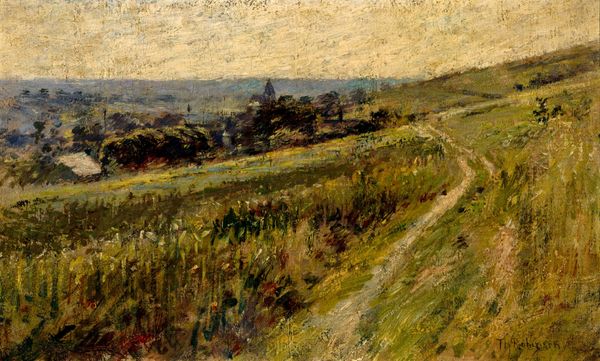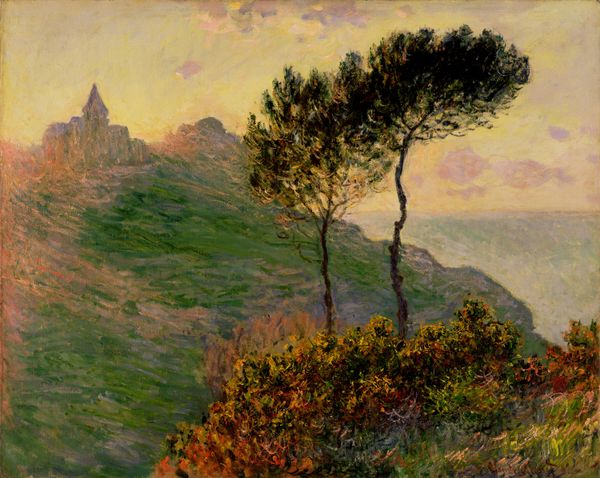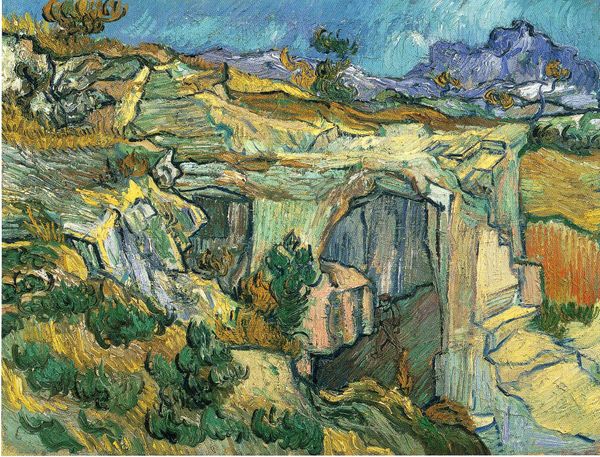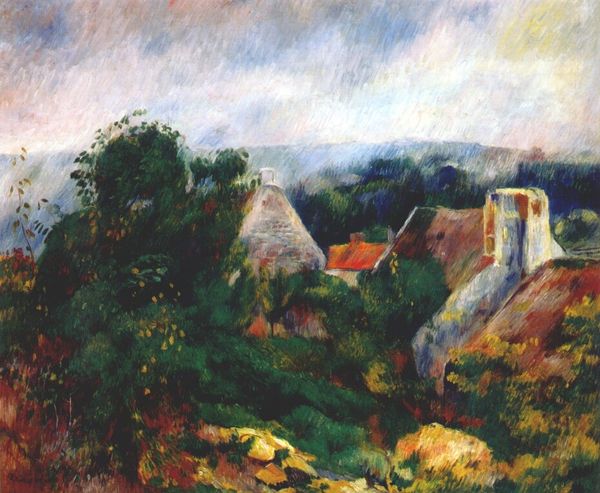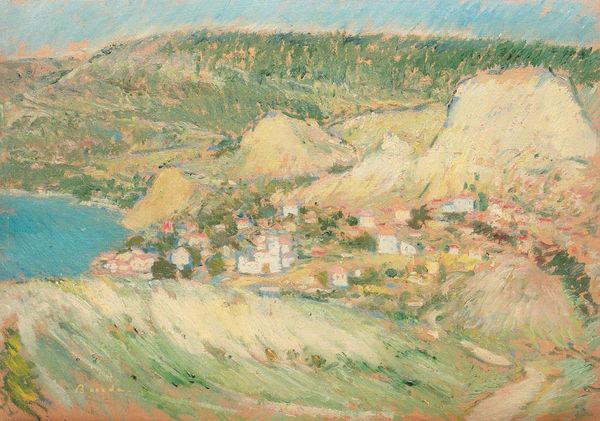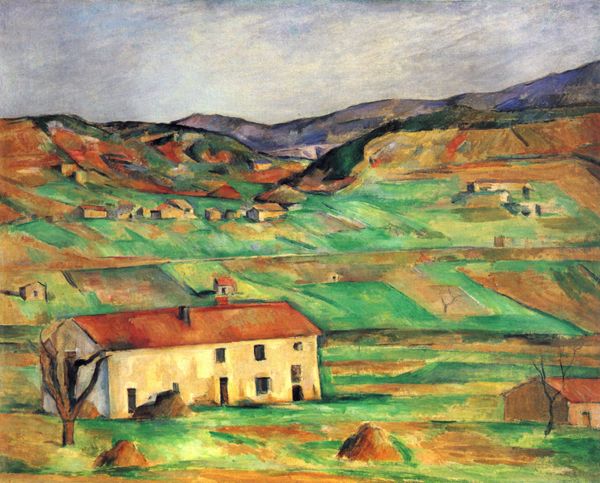
painting, plein-air, oil-paint
#
sky
#
painting
#
impressionism
#
impressionist painting style
#
plein-air
#
oil-paint
#
landscape
#
impressionist landscape
#
oil painting
#
seascape
#
cityscape
#
post-impressionism
Copyright: Public domain
Editor: So, this is Monet’s "View over Vétheuil" from 1881. It's an oil painting showing a village nestled in a valley. It feels very…dreamlike to me, almost like looking at a memory. What do you see in this piece? Curator: Beyond the surface, I see a commentary on the rapid social changes of late 19th-century France. The painting is ostensibly a tranquil landscape, but consider the historical context. The Industrial Revolution was reshaping French society, drawing people from rural areas to urban centers. Editor: So, you’re saying this idyllic scene might be masking a sense of loss? Curator: Precisely. Monet painted this after the death of his wife Camille, a profound personal loss intertwined with a broader societal shift. Does the vibrant but hazy application of the oil paint, which somewhat obscures the details of the village, suggest to you a romanticized, perhaps even unattainable, past? Editor: I see what you mean. The village isn't depicted with crystal clarity, but almost as if it's fading into the background. The brushstrokes are quick and loose, suggesting the fleeting nature of the moment. Curator: Exactly. It invites us to question the romanticism often associated with landscape painting. What’s being left out? Who benefits from this particular view? This challenges the traditional, often idealized, representations of the French countryside. The art world and political landscapes had long been dominated by specific white men in power. What place do women and people of color have in it, here? Editor: It’s fascinating to consider this idyllic scene as more than just a pretty picture, seeing the historical complexities that might exist. Thanks for the insight! Curator: Absolutely. Remember, art is rarely created in a vacuum. It’s a dialogue with the past, the present, and a projection into possible futures.
Comments
No comments
Be the first to comment and join the conversation on the ultimate creative platform.
